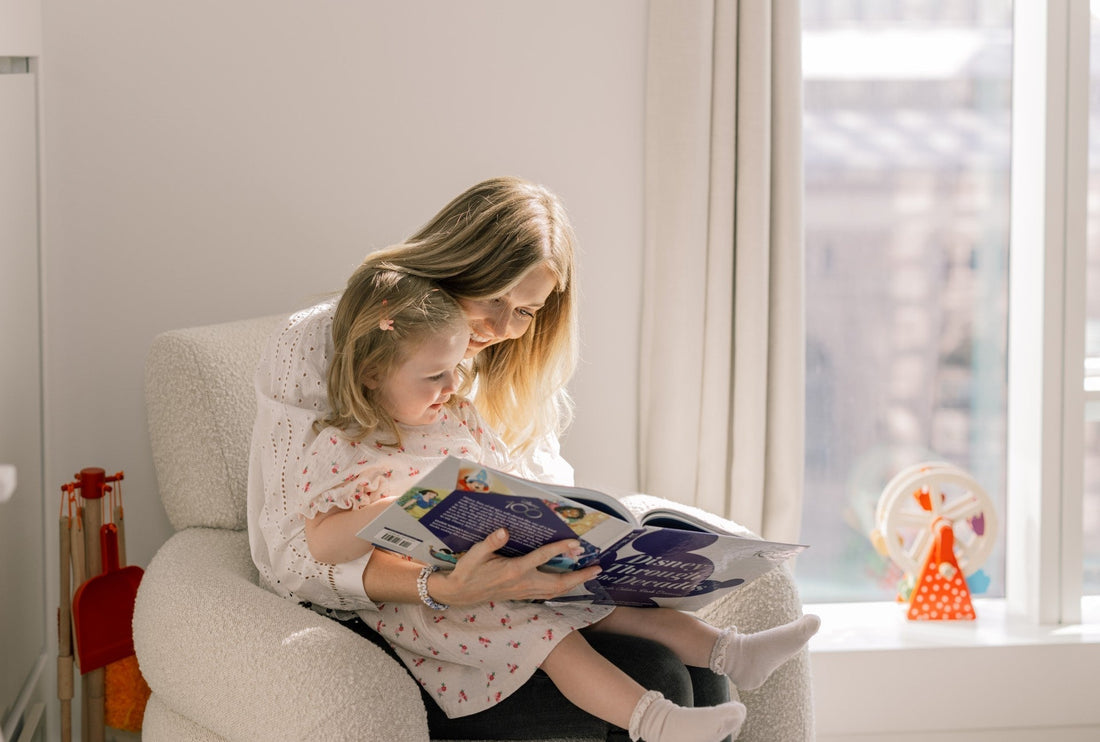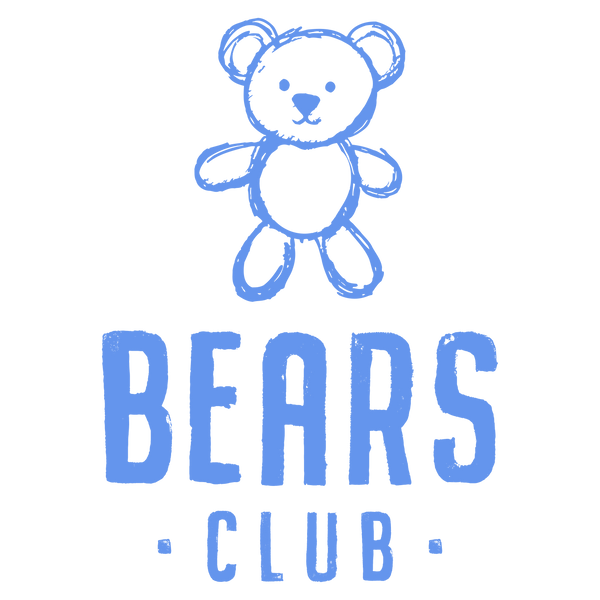MY "FIRST WORDS" FORMULA (by a pediatric speech therapist)

Share
As parents, there is nothing more magical than hearing our baby or toddler utter their first words. This sweet milestone will typically happen when your baby is between 10-15 months.
With a decade of experience as a pediatric speech and language therapist, I’ve learned there is, in fact, a “First Words Formula”, meaning we can directly impact when and what our babies say, first! Not only does early language development make day-to-day life easier by giving our little ones a way to express their needs and wants, but it’s also closely tied to their future social and academic success.
So, when do first words merge?
First words emerge when a baby has heard a word many, many (many!) times in context. In order to say a word by themselves, they must be able to:
1. Understand the meaning of the word
2. Remember the word
3. Have the initiative to use the word correctly.
Not an easy task!
But there are plenty of simple ways you can support your baby’s first words:
1. Parent-child engagement
Words directly related to a child’s focus (when a parent names an action or object their baby is interested in) directly impacts a child’s language development. Always follow your little one's lead by sharing interest in what they are looking at and interacting with. What’s interesting for them is motivating, and what’s motivating, is engaging. These motivating moments will allow you connect words to your child’s focus of attention, in-turn creating a gorgeous language learning moment.
2. Label things
Use simple words or short phrases to label people, toys, objects, noises etc. in your environment. A baby's first word is very often the names for things (like “mama”, “dada”, “wawa (water)”, “baba (bottle)”, “doggie”, etc. Modeling nouns (a person, place or thing) is highly supportive of early vocabulary development.
3. Add gestures to the words you use
Simple gestures like waving when saying “hello” and “bye-bye” or shaking your head when saying “no” helps babies learn words more quickly because the message is being delivered both visually and verbally. By holding up, pointing to, or giving your child an object while simultaneously labelling it, parents can make the meaning of our words really clear!
4. Repeat words
A toddler must hear a word many, many, many times before they are able to say it for themselves, so repeating words when talking to your little one is really important. Keep your sentences short and simple, like “Ball! Throw the ball! “Yellow ball” “Big ball” or “Climb up, up, up, up. Up the stairs!”
5. Ask Less, Comment More
Instead of asking lots of questions like, “What’s this?”, “What colour is this?”, “What’s your name?” “What shape is this”, simply comment on what your toddler is doing or seeing (or what you are doing or seeing). Questions can cause stress and put unnecessary pressure on your toddler. Language development is not about quizzing our children on what they know, but rather a medium to connect with our children and ensure they can make their needs and wants met from as early as possible!
There are many ways to supercharge your toddler’s language development, and the best part is, it’s not rocket science once you know how. If you’re interested in getting started or simply just want to learn more, visit my online speech development platform, www.daisyplays.com
With my guidance, you can learn practical, proven strategies to create a rich language-learning environment for your toddler at home, no matter their starting point. Early language development means less tantrums, and that’s a world we all deserve to love in!
Hannah O’Driscoll, MSc CCC-SLP. Mom to two Daisy & Sam | Pediatric speech therapist | Founder of @daisyplaysco

1 comment
Designed to help parents support early language milestones confidently, this pediatric speech therapist’s ‘First Words Formula’ is practical, evidence-based, and empowering.